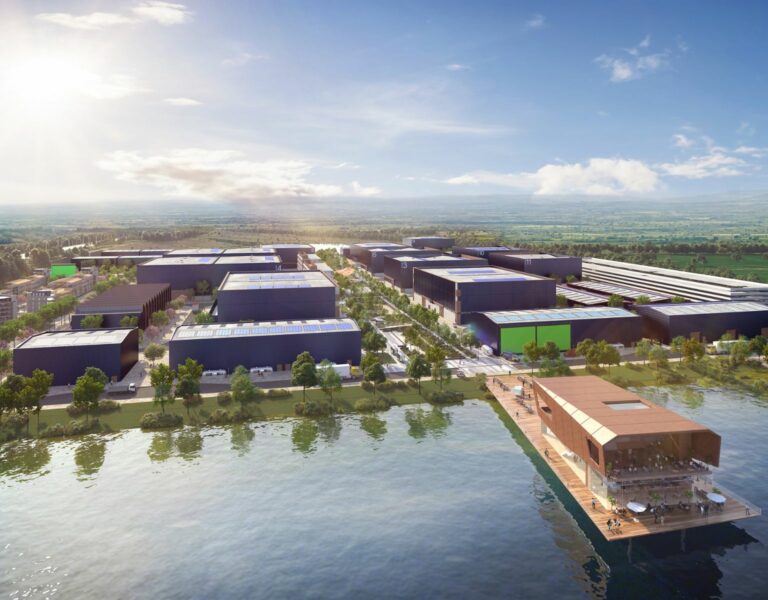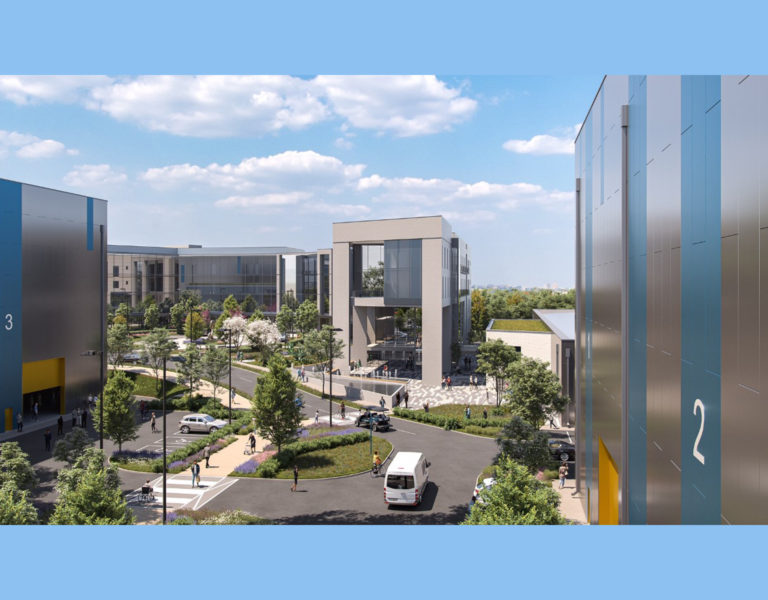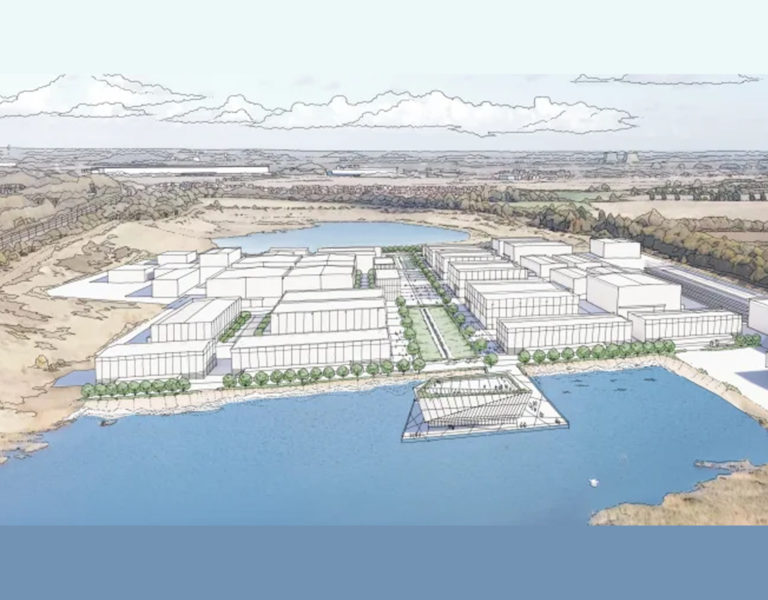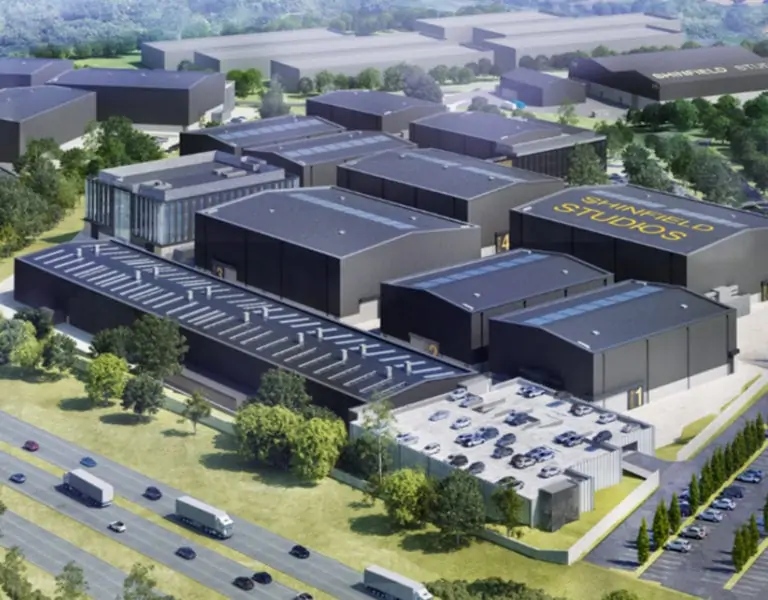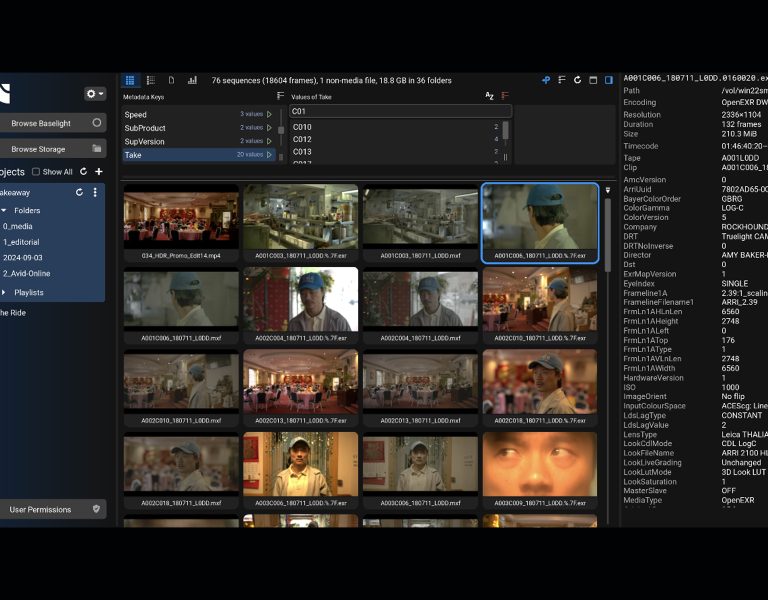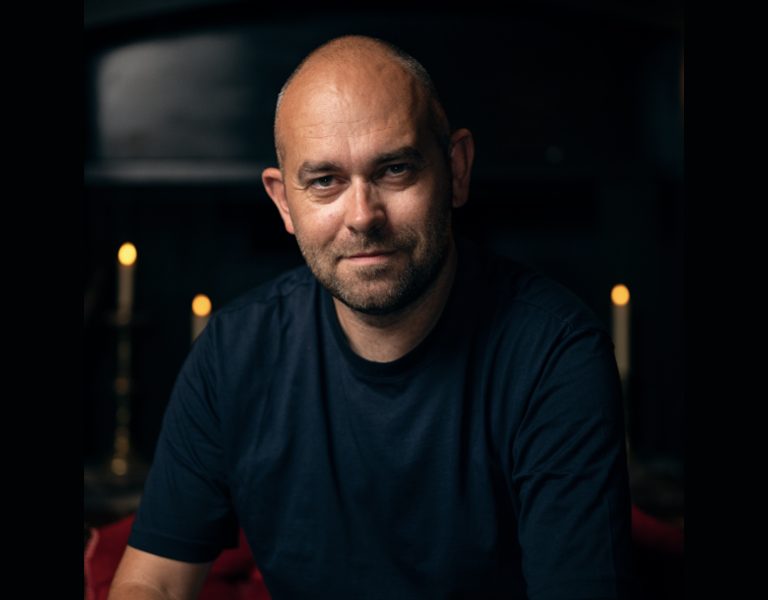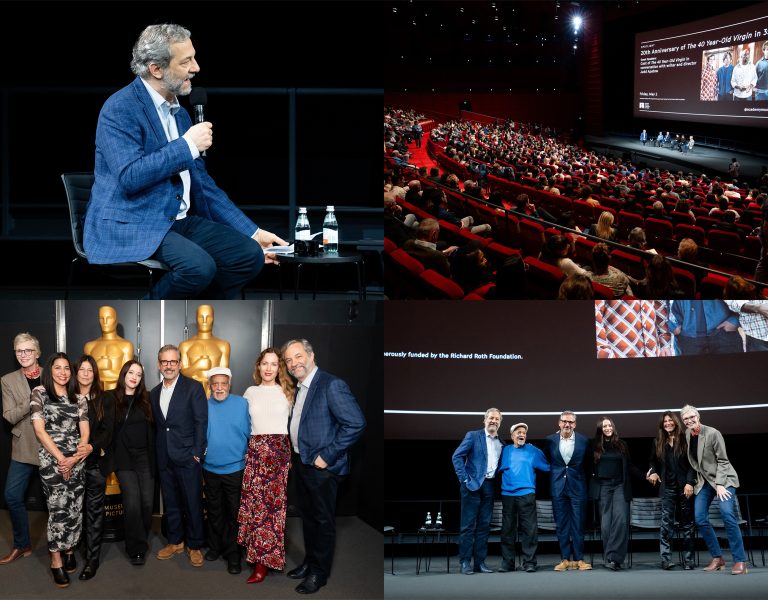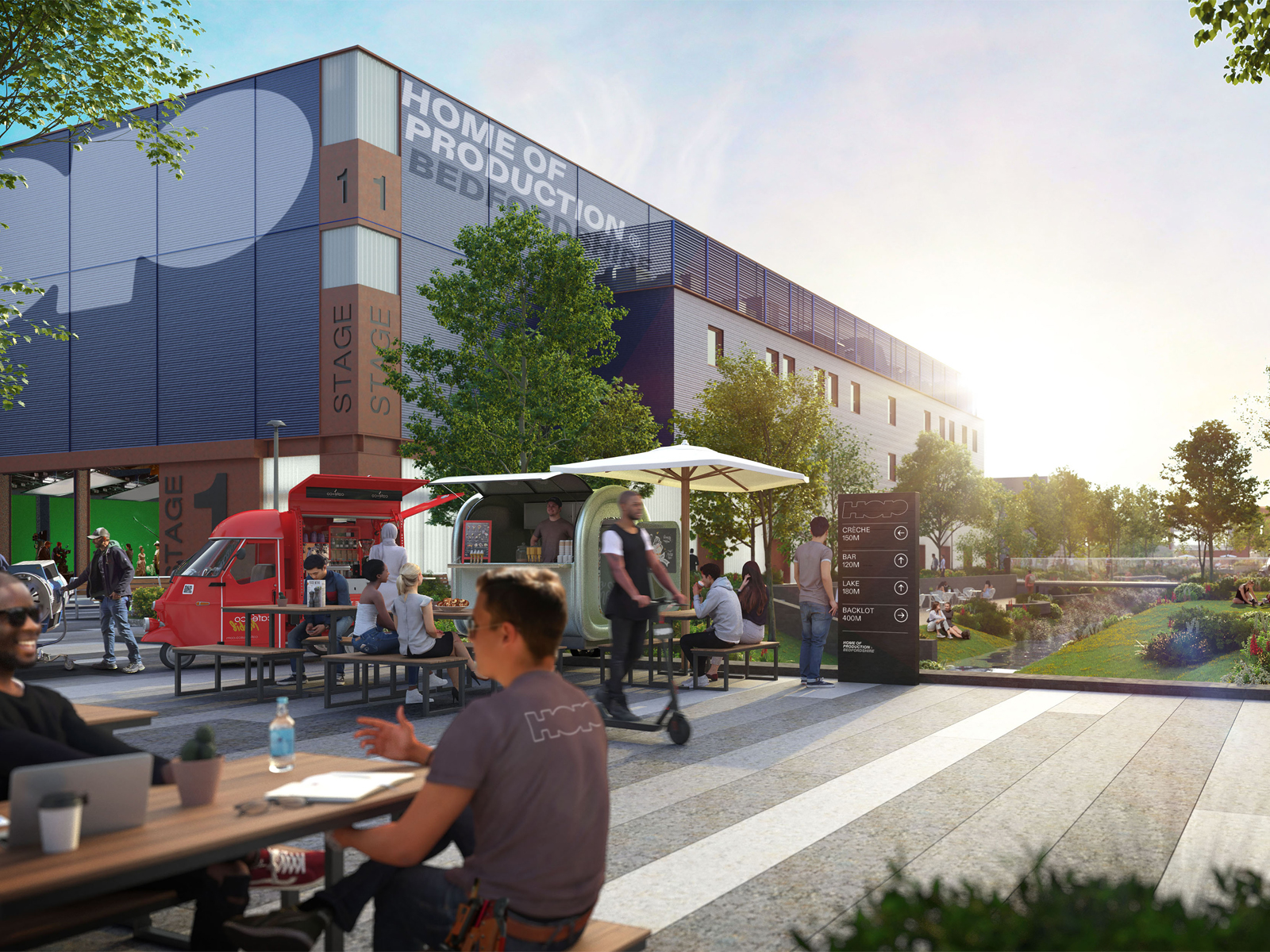
Following extensive public consultation, Scott Brownrigg’s masterplan for a new film and television studio campus in central Bedfordshire has been approved for planning by Central Bedfordshire Council.
Building on the UK’s reputation as a destination for world–class filmmaking, Home of Production (HOP) will be the first facility designed by producers, for producers – incorporating state-of-the-art facilities that address the needs of producers and their teams. Revolutionising the experience for crew, attracting a new generation of producers, and enhancing the environment and local economy alike.
A rare opportunity to create the ‘ideal’ film campus from scratch, the new-build scheme redevelops a 143-acre brownfield site to discreetly provide over 1.75m sq ft flexible indoor and outdoor studio space and associated facilities, set within a tranquil waterside environment that crews can call home.
While staying onsite in self-contained suites, crews can enjoy a drink or bite to eat at one of the permanent bars, restaurants or cafes that line the central piazza, exercise in the gym, or watch a film premier at the waterside hospitality suite. A medical centre, childcare facilities and faith rooms are provided to support wellbeing, and disabled access is weaved throughout the masterplan to encourage equality of opportunity.
Director at Scott Brownrigg, Jason Lebidineuse said of the project: “Linking education to industry, HOP studios create a vibrant campus environment with a true sense of place in order to inspire the next generation and ensure succession for all facets of the industry. Providing much needed investment into the independent film and TV industry and helping to meet the growing demand for studio space in the UK.”
HOP sets a new benchmark for sustainable studio facilities in the UK and internationally by putting sustainability, site ecology and staff wellbeing at the heart of its design ethos. A significant net gain for biodiversity for Central Bedfordshire is achieved through the introduction of ecological corridors, new wetland and floating reed beds across the site, and the creation of approximately 70 hectares of replacement habitat and woodland nearby. Nature is also brought into the main studio site through theintroduction of a central canal, providing an opportunity to relax, interact and benefit from a range of activities and social spaces populated on its banks.
The buildings themselves follow a fabric first approach to ensure they are low in both operational and embodied carbon. The scheme is designed to maximise onsite renewables and provides the infrastructure necessary to promote the reuse and recycling of materials during the studio production process.
Phase 1 of the scheme is estimated to create a raft of apprenticeship, employment and education opportunities for the community. Helping to attract major production companies to the UK and drive local economy.
The masterplan has been supported by Sweco (Structures, Civil and MEP), McFarlane + Associates (Landscape), Lichfields (Planning), RSK Wilding (Environmental) and DLP (Transport/Highways).
